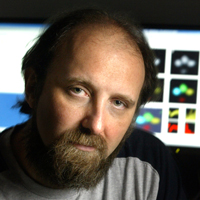"The Cognitive-Emotional Brain" (BSP 106)
/Luiz Pessoa of the University of Maryland
In The Cognitive-Emotional Brain: From Interactions to Integration neuroscientist Luiz Pessoa argues that emotion and cognition are deeply intertwined throughout many levels of the brain. In a recent interview (BSP 106) Pessoa and I focused on recent discoveries about the amygdala and Thalamus that challenge traditional assumptions about what these structures do. The amygdala processes more than fear (and other negative stimuli) and the Thalamus is more than a mere relay station.
This a fairly technical discussion but Pessoa did a good job of making the material accessible to all listeners. The reason I think these concepts matter is that not only do they challenge overly simplistic notions of how the brain works, but they also challenge our tendency to see emotion and cognition as separate and often opposing processes.
How to get this episode:
Premium Subscribers now have unlimited access to all old episodes and transcripts.
New episodes of the Brain Science Podcast are always FREE. The 50 most recent episodes are also free. Just subscribe in your favorite podcasting app.
References and Additional Reading
The Cognitive-Emotional Brain: From Interactions to Integration by Luiz Pessoa
Pessoa L, Adolphs R. (2010) "Emotion processing and the amygdala: from a 'low road' to 'many roads' of evaluating biological significance.” Nature Reviews Neuroscience, 11(11):773-83. doi: 10.1038/nrn2920.
Networks of the Brain by Olaf Sporns
In Search of Memory: The Emergence of a New Science of Mind by Eric R. Kandel (BSP 3)
Beyond Boundaries: The New Neuroscience of Connecting Brains with Machines---and How It Will Change Our Lives by Miguel Nicolelis (BSP 79)
Visit Dr. Pessoa's lab at emotioncognition.org to learn more.
Related Episodes
BSP 11: Emotion
BSP 32: a brief introduction to Neuroanatomy
BSP 65 and BSP 91 are interviews with Jaak Panksepp about the subcortical origins of emotion
I spoke with Olaf Sporns about the Human Connectome and the use of Network Theory in BSP 74 and BSP 103.
BSP 90: a discussion of Self Comes to Mind: Constructing the Conscious Brain by Antonio Damasio.
Announcements
Please check out my other podcast Books and Ideas. I will be posting a new episode by the end of February.
Visit the Brain Science Podcast Group on Goodreads to learn what books are coming and to post comments about this or any other episode.
If you have signed up for our new Premium Subscription you can get your Premium content via your web browser or via the BSP Mobile app. Unfortunately other podcasting apps like Downcast and Stitcher can not play premium content, but they will continue to get New episodes. Click here for short cut to Premium Login.
Sign up for our Free Newsletter to get show notes like these automatically every month.































